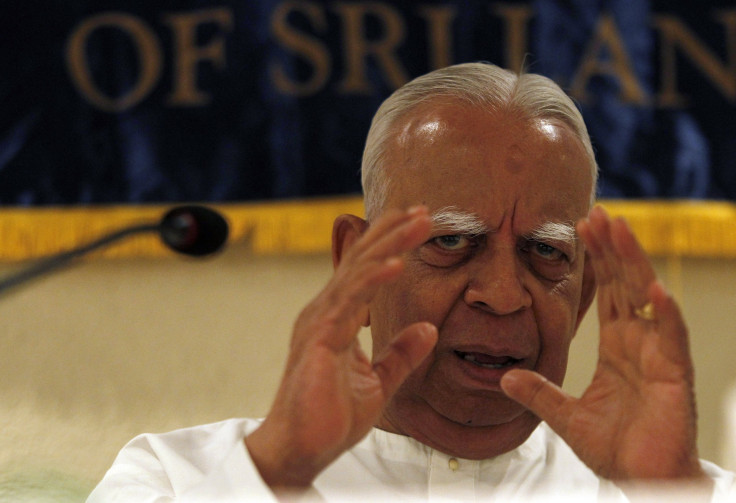Sri Lanka: Tamil Leader To Head Opposition For The First Time In Over 3 Decades

Rajavarothiam Sampanthan, leader of the Tamil National Alliance (TNA) -- the Sri Lankan political party that won 16 seats in last month’s parliamentary elections -- was declared leader of opposition Thursday, making him the first lawmaker from the minority community to lead the opposition in the 225-member House in 32 years.
“We shall be loyal to this country and the people of this country,” Sampanthan reportedly told the House Thursday, after the TNA was declared the main opposition party. “Our primary duty is to ensure that there is an acceptable resolution to the Tamil question.”
Sampanthan, 82, is only the second Tamil to lead the opposition in the history of the island nation. In 1977, Appapillai Amirthalingam, who was a member of the Tamil United Liberation Front, became the opposition leader -- a position he held until 1983.
Although the TNA has, in the past, been accused of being a mouthpiece for separatist Tamils, the party has renounced separatism. Earlier this week, Sampanthan reportedly said that he would push for greater autonomy for Tamils in the country.
Sri Lanka, which emerged from a three-decade-long violent conflict that pitted the Liberation Tigers of Tamil Eelam (LTTE) -- a separatist group belonging to the country’s Tamil minority -- against its majority Sinhalese population, in 2009, continues to suffer from a deep ethnic divide.
Currently, Tamils make up approximately 18 percent of Sri Lanka’s 20.5 million population, while the Sinhalese account for nearly 74 percent. Thursday's announcement can be seen as a positive step toward reconciling deep divisions between the two main ethnic groups in the country.
In last month’s election, which was largely perceived as a referendum on Mahinda Rajapaksa’s comeback bid, the former president failed to secure a majority -- dashing his hopes of becoming the prime minister. While he garnered substantial support among the Sinhalese community for defeating the LTTE, he was blamed for failing to bring about ethnic reconciliation in the aftermath bloody civil war which, according to some estimates, led to the death of nearly 100,000 people.
Additionally, Rajapaksa’s government has also been accused of committing and hiding war crimes, an allegation he has consistently denied.
© Copyright IBTimes 2025. All rights reserved.






















